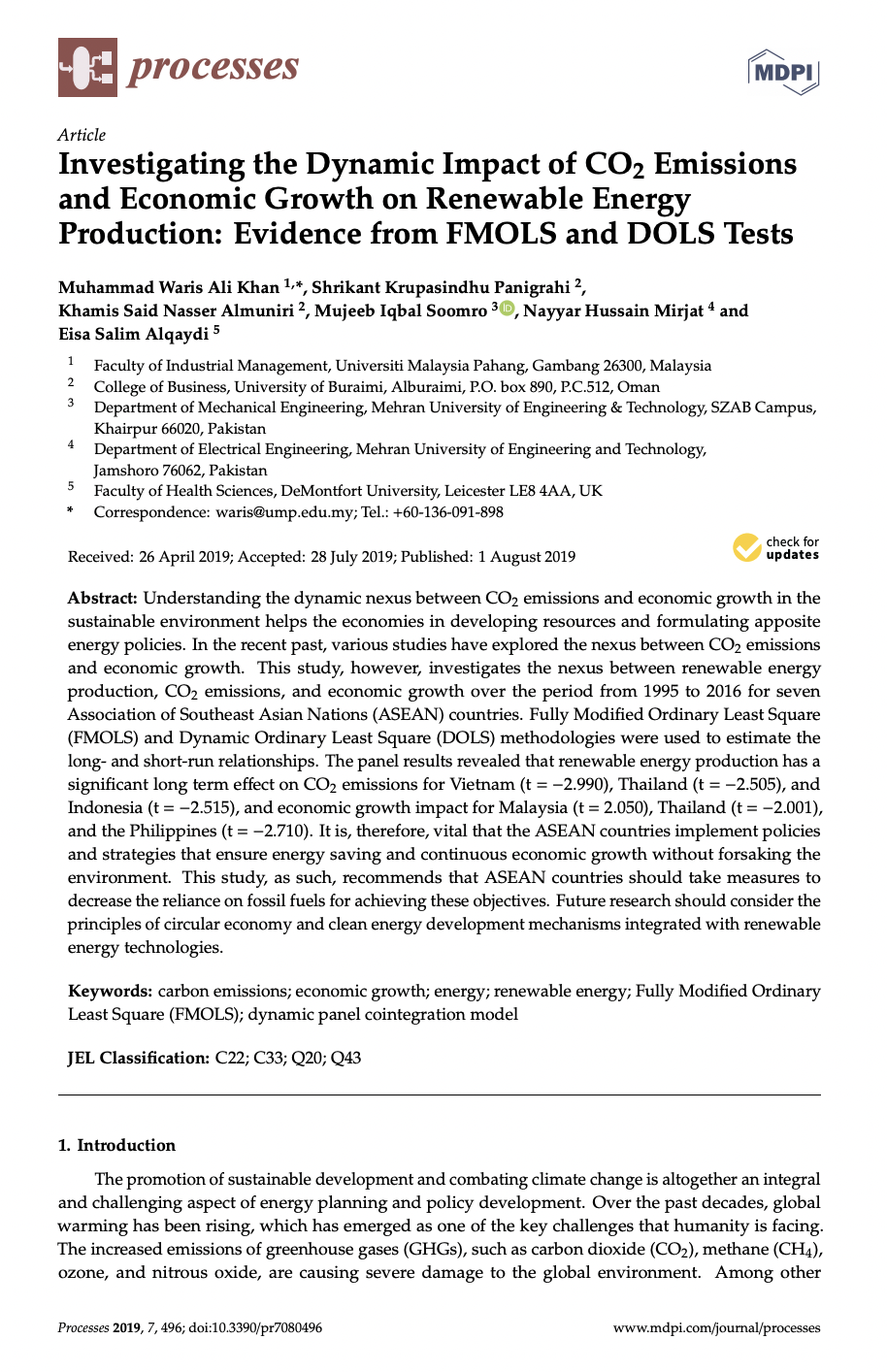
Keyword(s)
Author(s)
Muhammad Waris Ali Khan (a), Shrikant Krupasindhu Panigrahi (b), Khamis Said Nasser Almuniri (b), Mujeeb Iqbal Soomro (c), Nayyar Hussain Mirjat (d), Eisa Salim Alqaydi (e)
Publisher
Published Date
Access
DOI
(a) Faculty of Industrial Management, Universiti Malaysia Pahang, Gambang 26300, Malaysia
(b) College of Business, University of Buraimi, Alburaimi, P.O. Box 890, P.C.512, Oman
(c) Department of Mechanical Engineering, Mehran University of Engineering & Technology, SZAB Campus, Khairpur 66020, Pakistan
(d) Department of Electrical Engineering, Mehran University of Engineering and Technology, Jamshoro 76062, Pakistan
(e) Faculty of Health Sciences, DeMontfort University, Leicester LE8 4AA, UK
Understanding the dynamic nexus between CO2 emissions and economic growth in the sustainable environment helps the economies in developing resources and formulating apposite energy policies. In the recent past, various studies have explored the nexus between CO2 emissions and economic growth. This study, however, investigates the nexus between renewable energy production, CO2 emissions, and economic growth over the period from 1995 to 2016 for seven Association of Southeast Asian Nations (ASEAN) countries. Fully Modified Ordinary Least Square (FMOLS) and Dynamic Ordinary Least Square (DOLS) methodologies were used to estimate the long- and short-run relationships. The panel results revealed that renewable energy production has a significant long term effect on CO2 emissions for Vietnam (t = −2.990), Thailand (t = −2.505), and Indonesia (t = −2.515), and economic growth impact for Malaysia (t = 2.050), Thailand (t = −2.001), and the Philippines (t = −2.710). It is, therefore, vital that the ASEAN countries implement policies and strategies that ensure energy saving and continuous economic growth without forsaking the environment. This study, as such, recommends that ASEAN countries should take measures to decrease the reliance on fossil fuels for achieving these objectives. Future research should consider the principles of circular economy and clean energy development mechanisms integrated with renewable energy technologies.
Cite:
Khan, M.W.A.; Panigrahi, S.K.; Almuniri, K.S.N.; Soomro, M.I.; Mirjat, N.H.; Alqaydi, E.S. Investigating the Dynamic Impact of CO2 Emissions and Economic Growth on Renewable Energy Production: Evidence from FMOLS and DOLS Tests. Processes 2019, 7, 496. https://doi.org/10.3390/pr7080496